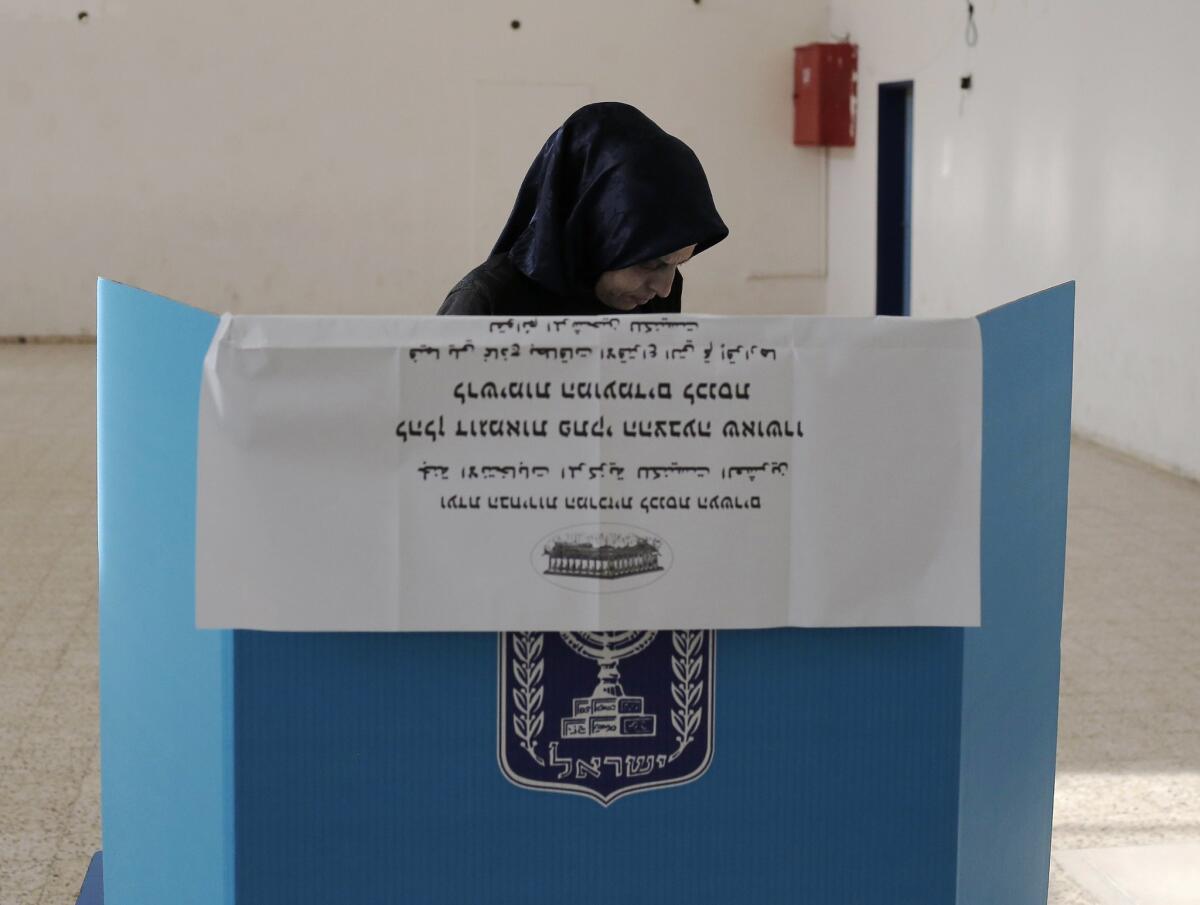Editorial: Netanyahu’s remarks on Israel’s Arab citizens part of a disturbing conversation

- Share via
Under pressure from around the world, Israeli Prime Minister Benjamin Netanyahu apologized Monday for his last-minute campaign diatribe in which he declared ominously that the Arab citizens of Israel were being bused to the polls “en masse” and were “distorting” the election by simply exercising their right to vote.
But don’t be fooled: Netanyahu did not misspeak, nor did his comments come out of the blue. Rather, they are part of a disturbing, undemocratic conversation that has been underway in Israel for a long time — but which ought to come to an end.
Here are a few examples. A 2013 poll by the Israeli Democracy Institute and Tel Aviv University showed that 49% of the Jews in Israel believed that if a peace deal were reached and put to a referendum, Arab citizens should not be permitted to participate. In 2009, Avigdor Lieberman, who currently serves as Israel’s minister of foreign affairs, argued in his campaign that Arab citizens should be required to sign loyalty oaths and accept the country’s flag and national anthem. If they refused, he said, they should be stripped of their citizenship. In the 1990s, some politicians called for excluding Arab lawmakers from important Knesset votes on issues of national security.
Disenfranchising non-Jewish citizens for vital national votes and revoking their citizenship based on their political beliefs are monumentally unwise ideas that reflect a long-standing dichotomy in Israel. Since its founding, Israel has defined itself, on one hand, as a Jewish state, where Jews can feel safe and welcome after a long history of persecution and anti-Semitism. On the other hand, it has also claimed to be a democratic country, promising in its Declaration of Statehood in 1948 “complete equality of social and political rights to all its inhabitants irrespective of religion, race or sex.”
So which is it? A Jewish state or a state of all its citizens? Or can it be both? Despite a long history of discrimination against its Arab citizens — including restrictions on the right to buy land and on where they can live — Israel has allowed them to vote in meaningful elections, criticize the government and run for office, rights they might not have had in many other countries in the region.
But when times get tough in Israel, when politics become tense, when violence arises, there’s often a temptation to view the Arabs of Israel as a potential fifth column, and to restrict or revoke their rights.
That’s a big mistake. Even in a “Jewish state,” it is unconscionable to deny members of a minority group the right to participate in crucial national debates. Of course there are many Arabs in Israel who identify with the Palestinian cause or who are hostile to the very idea of Israel. But they are citizens nevertheless, and should not be chastised for exercising their rights.
An alternative approach would be to treat all citizens alike, regardless of their religion, while also working honestly and vigorously to create a sovereign Palestinian state that would reduce tension between these two historically hostile groups.
Follow the Opinion section on Twitter @latimesopinion and Facebook
More to Read
A cure for the common opinion
Get thought-provoking perspectives with our weekly newsletter.
You may occasionally receive promotional content from the Los Angeles Times.






